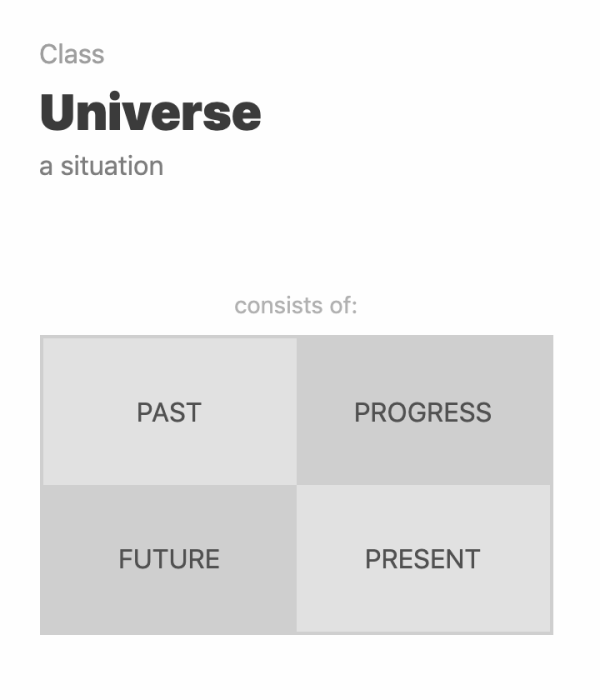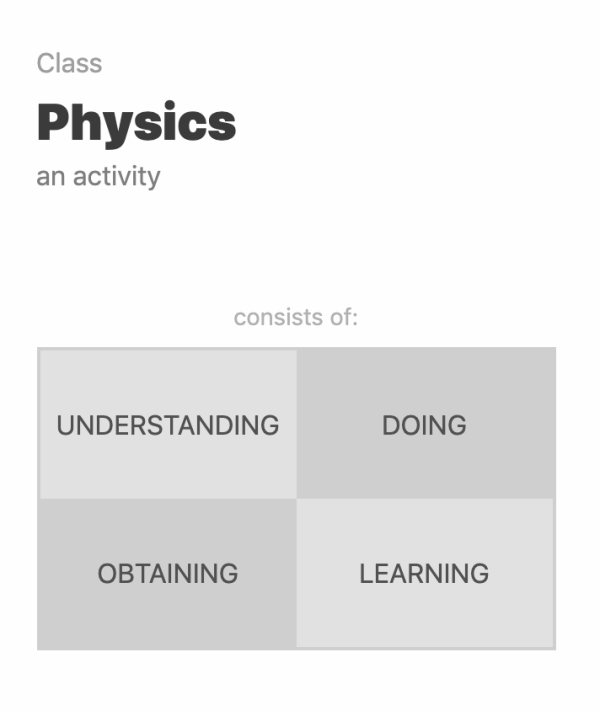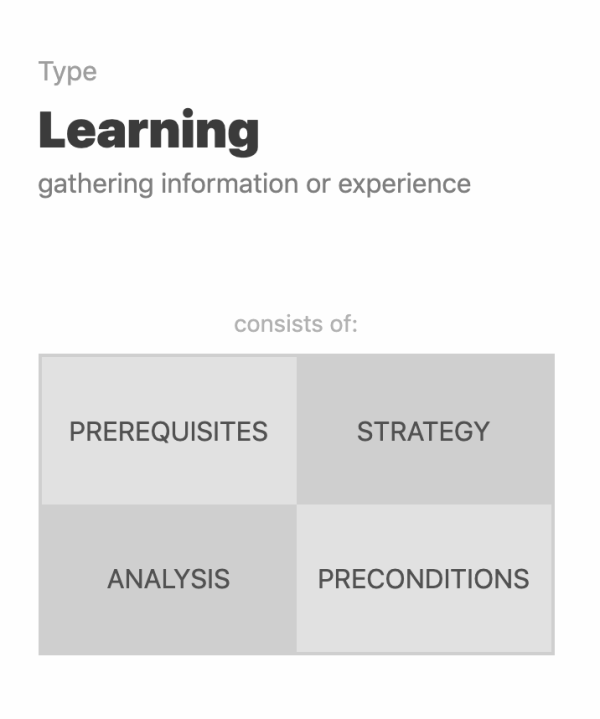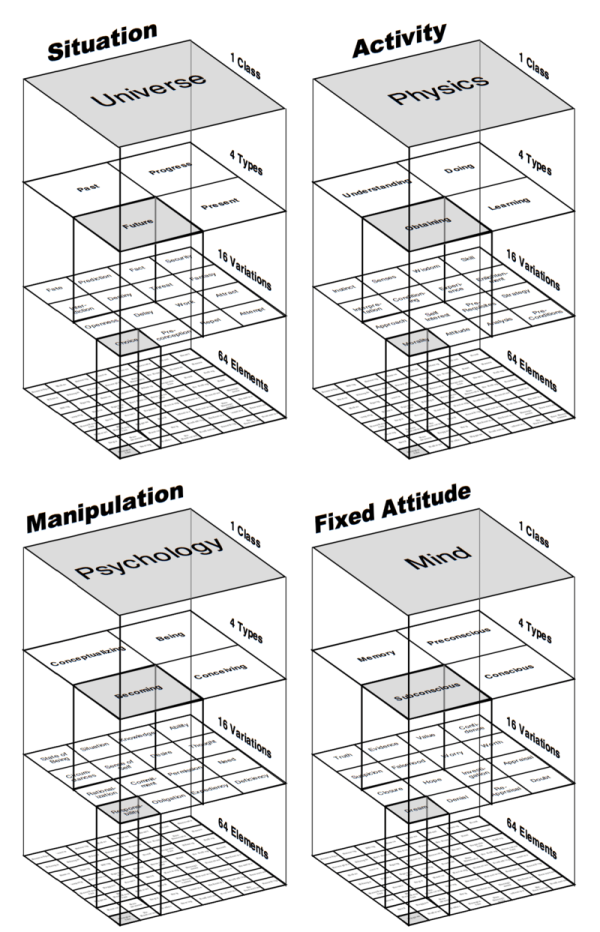
Writing a Story About Learning
Understanding the act of learning as a Source of Conflict
Learning the Dramatica theory of story is a double-edged sword. On the one hand, you discover realities of narrative unspoken of in any other circles; on the other, you drive yourself mad coming to terms with the ignorance of your preconceptions. Learning about the process of Learning makes that sword only cut deeper.
Dramatica delineates the act of achieving a Story Goal from the quality of that Goal. Some stories indeed explore a Story Goal of attaining, or Obtaining—while countless others veer off into several different areas of psychological consideration.
One of the more difficult areas to understand is that of Learning. When presented with an area of conflict in the physical realm, four types of narrative drive rise to the surface:
Of all these, Doing and Obtaining are the easiest. Fighting, punching, kicking—pretty much any Marvel superhero movie—exists in either Doing or Obtaining.
Understanding may appear internal until one appreciates the kind of misunderstandings that arise from perception and awareness. Think The Sixth Sense, or Inception.
Learning is the most bizarre, and the Black Sheep of the Physics Domain.[^quad] We often don't think of the conflict involved in learning something new—it's either confusing or easy, and once learned is over. The process of Learning fails to stand out as the focal point for an entire story.
[^quad]: It should be noted that in every quad, there is always one item that seems drastically out of place. This odd-man-out reality is by design and part of the model's structure.
Seeking Out the Conflict
With the kind of complete story found in a Dramatica storyform, it's never about what the characters "need" or what they "should" do, or what they "learn". It's always what is. What is the conflict? Where is the trouble? Where is the inequity?
A Concern of Learning requires struggle in the actual process of acquiring or Learning. The Learning is every bit as difficult as Doing or Obtaining. When it comes to appreciating the kind of conflict inherent in this Method, I always think of going to school, and the battle experienced while Learning:
- homework must be completed, and pop quizzes and tests must be passed to move from one level to the next
- the lesson plans of the teacher, your plans, the best place to study, and finding a way to cover all of them at once vie for space on your calendar
- progress reports and parent-teacher conferences bring challenging emotions
- cliques, student body organizations, after school groups, rallies, and fund-raisers change the way people think about you while you learn
Each of these four areas represents a vital aspect of Learning. You would be hard-pressed to find another point of schooling not represented by one of the above.
And that's by design.
The Design of Dramatica
The Dramatica Table of Story Elements is a fractal model: smaller components of a story within more significant parts of the story within even larger components. If you want to understand one particular Method of the story entirely, you look to its component children underneath for greater clarity.
The Universe consists of Past, Progress, Future, and Present.
Physics consists of Understanding, Doing, Obtaining, and Learning.



And Learning is made up of Prerequisites, Strategy, Analysis, and Preconditions.
What?!
Exactly.
Not only is Learning challenging to appreciate in terms of narrative conflict, but its component-level makeup is also even more confusing. How do you write a scene about Analysis? Why are Prerequisites even a thing when it comes to penning a new novel, or screenplay?
More importantly—is this why Learning is so challenging to understand as a potential Source of Conflict? (Yes)
The Definitions of Learning
As with everything in Dramatica, definitions of conceptual Elements outweigh the theoretical Elements themselves.
Prerequisites define the preliminary steps that must be met while Learning.
Strategy signals a plan to achieve one's purpose while Learning
Analysis looks at the information gathered during the Learning
Preconditions apply limitations put in place by others
And it's not enough to simply visit these definitions within a story—they must all present themselves as Sources of Conflict. The preliminary steps slow the learning process down. Strategies hinder and weaken the quality of information gathered. Analysis paralysis halts learning until both situations and circumstances pass approval. Imposed restrictions invite confirmation bias and social endorsement.
The process of Learning, it seems, is ripe with the potential for conflict.
Learning the Rules of the Game
The four-component children of Learning sync up with the examples of schooling:
- homework for the sake of homework reflects Prerequisites
- a strategy of retreating to the library for study isolates the individual from the benefits of a group dynamic, signaling issues of Strategy
- grades and state-proficiency tests challenge teachers to teach only that which increases the bottom line, bringing Analysis into the conversation
- cookie-dough fund raiders weaken one's ability to learn because of a focus on social cues, the problem with Preconditions
Regardless of aspect, the element of Learning in Dramatica always reflects a process of gathering information—not the aftermath of having learned something.
The Method is Learning, not Learned. The process of Learning creates conflict, its ongoing steps and strategies manifesting more and more trouble while Learning—this is what one should write about when writing about Learning.
Writing about Learning
The difficulties inherent in appreciating this process of Learning as a Source of Conflict often leads one to cop out when it comes to writing a story:
Hello Jim, If I have a MC signpost 2 of Learning, can I encode it as 'someone learns something about me (I)', the Main character? Or do I (the MC) have to do the Learning?
The tendency with Main Characters, because they're often based on the Author, is to avoid addressing any personal issues directly and instead, project them onto characters around the Main Character. In this way, the MC isn't dealing with their inequities—somebody else is doing it to them. Focusing elsewhere is not indicative of the Main Character perspective—it's closer to the Obstacle Character perspective.
With every Storybeat found in the Main Character Throughline, you want to try and make it something the MC is experiencing or going through because of his or her point-of-view.
The Journey of Learning to Write
The struggle to Learn is just as ripe for conflict as Obtaining dominance over someone or Doing things better than the next guy or Understanding the deep mysteries of lost civilizations. Learning the ropes is a constant battle between preparation and analysis.
Consider the 2006 Oscar winner for Best Foreign Language Film, The Lives of Others. Spying and listening in on the conversations of artists in East Germany lead many creatives to feel as if there life had no purpose (Strategy vs. Analysis); having to trade self-respect for artistic expression led many to take the necessary steps required to get their message of desperation out to rest of the world (Preconditions vs. Prerequisites).
Remember that all the Methods in the model are processes—not single instances. It's not that a character, or group of characters, Learned something, but that Learning something is in conflict. With an Objective Story Concern of Learning, the process of Learning strikes a continuous imbalance of conflict for everyone in the story.
The same thing with something like an Objective Story Transit 1 of Understanding—they don't understand something, they conflict with an ongoing process of Understanding. Even something as strange as a Main Character Issue of Fate is seen as a process. It's not that he is fated to fall into bad times, or that bad luck strikes—it's that he endures a process of Fate-ing, of continually engaging in fatalistic thought, or seeing things in light of Fate, that creates conflict.
Always think of the narrative as something that is continuously in transition—continually moving through the storyform.
Download the FREE e-book Never Trust a Hero
Don't miss out on the latest in narrative theory and storytelling with artificial intelligence. Subscribe to the Narrative First newsletter below and receive a link to download the 20-page e-book, Never Trust a Hero.


